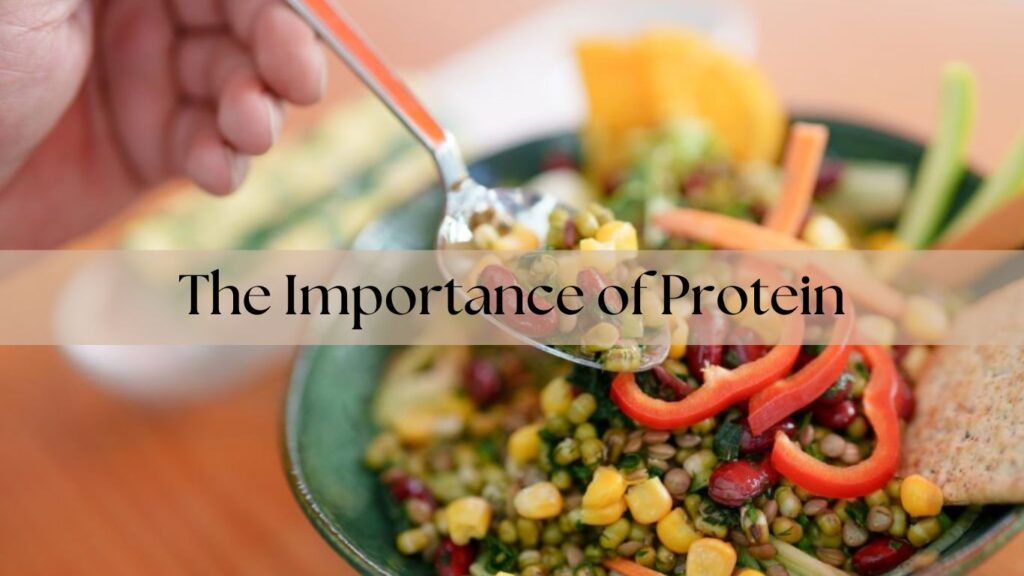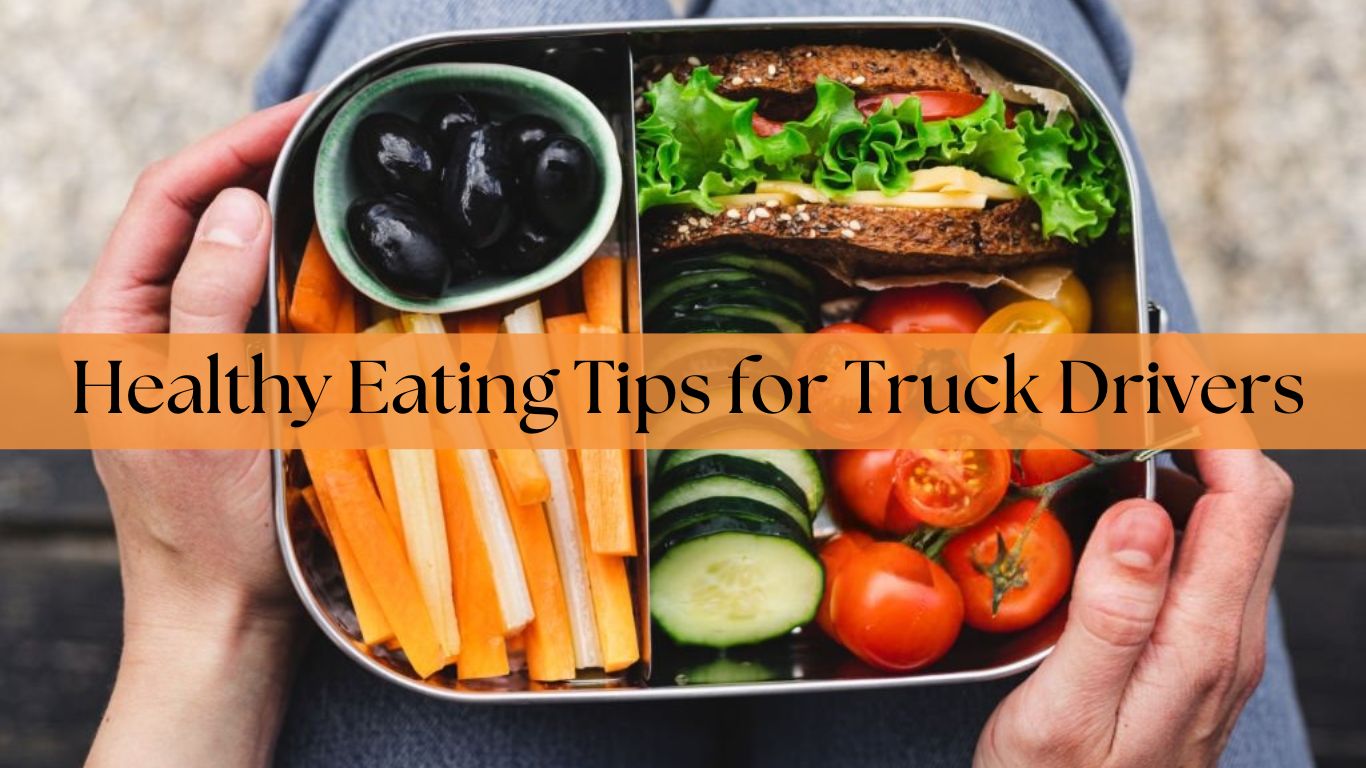Life on the road is no easy feat, especially for truck drivers who spend long hours behind the wheel. Maintaining a healthy diet can seem like an uphill battle, with the lure of fast food, convenience stores, and irregular schedules making it difficult. However, prioritizing nutrition is essential for staying alert, maintaining energy, and promoting long-term health. Here are some tips to help truck drivers eat better.
“healthy eating tips for truck drivers”
The Nutritional Needs of Truck Drivers
Truck drivers need special diets because of their sedentary lifestyle. They burn fewer calories than active people. So, they should avoid empty calories and choose nutrient-rich foods.
- Calorie Requirements: Drivers need 2,000–2,500 calories daily, based on age, gender, and activity.
- Essential Nutrients: A balanced diet includes protein, healthy fats, complex carbs, vitamins, and minerals. These keep energy levels up.
- Energy Balance: Foods like oats and nuts are good for drivers to fight fatigue.
Challenges of Eating Healthy on the Road
Healthy eating is hard on the road. Drivers face:
- Limited Food Options: Fast food is common along highways, offering low-nutrient meals.
- Time Constraints: Drivers have little time to find healthy food.
- Convenience Store Temptations: It’s easy to grab chips, candy, and sugary drinks at pit stops.
Preparing for a Healthy Journey
Stocking Up on Healthy Foods
Packing your own food can change everything. Here are some essentials:
- Non-Perishable Items: Whole-grain crackers, canned tuna, nuts, seeds, and jerky.
- Fresh Produce: Apples, bananas, baby carrots, and cherry tomatoes.
- Healthy Snacks: Protein bars, low-sugar granola, or rice cakes.
Portable Cooking Solutions
Having cooking tools in your truck opens up meal options:
- Essential Equipment: Slow cookers, portable stoves, or electric coolers.
- Quick Meal Ideas: Oatmeal for breakfast, stir-fried veggies with chicken for lunch, and bean salads for dinner.
Smart Choices at Truck Stops
Eating well at truck stops is possible. Here’s how to make smart choices:
- Opt for grilled options over fried ones.
- Load up on vegetable sides instead of fries.
- Look for smaller portions to control calorie intake.
Beverages to Avoid
Sugary drinks can ruin your diet. Instead, try:
- Water with lemon or cucumber.
- Unsweetened tea or coffee.
- Low-sugar electrolyte drinks for a refreshing pick-me-up.
Incorporating Balanced Meals
The Importance of Protein
Protein is key for a healthy diet. It keeps you full and supports muscle health. Good protein sources include:

- Grilled chicken, turkey, or fish.
- Hard-boiled eggs.
- Plant-based proteins like lentils and chickpeas.
Adding Fruits and Vegetables
Fruits and veggies are easy to include in your diet:
- Portable Choices: Apples, oranges, and dried fruits are great on the go.
- Easy Prep: Pre-washed salad kits or steamed veggie pouches require minimal effort.
Managing Cravings and Snacking Wisely
Healthy Snack Alternatives
Swap unhealthy snacks for better choices:
- Instead of chips: Try air-popped popcorn or roasted chickpeas.
- Instead of candy: Opt for dark chocolate or fresh berries.
Tips for Controlling Cravings
- Stay hydrated; thirst is often mistaken for hunger.
- Chew gum or sip herbal tea to keep your mouth busy during long drives.
Building Consistent Eating Habits
A consistent eating schedule is key to a healthy diet. Truck drivers often face irregular hours, making it crucial to establish a routine.
- Set Regular Meal Times: Eat at the same times daily, even when on the road. This regulates your metabolism and prevents overeating.
- Portion Control: Use pre-portioned containers to avoid overindulging. It’s easy to overeat when meals aren’t measured, especially during late-night drives.
- Plan Ahead: Map out when and where you’ll eat. Having a plan reduces the temptation to stop at fast-food joints or grab sugary snacks.
Staying Hydrated on the Road
Water is a truck driver’s best friend. Proper hydration is crucial for energy, focus, and overall health.
- Carry a Reusable Water Bottle: Keep it within arm’s reach and refill it whenever you can.
- Creative Hydration: Add slices of lemon, cucumber, or mint for a refreshing twist.
- Monitor Caffeine Intake: While coffee can help keep you alert, too much caffeine can lead to dehydration and restlessness. Balance your caffeine consumption with plenty of water.
Benefits of Physical Activity
Exercise and trucking may seem like they don’t mix, but it’s easier than you think. Movement is vital to offset the sedentary nature of long-haul driving.
- Stretch During Breaks: Simple stretches can prevent stiffness and improve circulation. Try shoulder rolls, neck stretches, and toe touches.
- Use Resistance Bands: These portable tools are perfect for quick workouts in or around your truck.
- Walk When Possible: Park further away at rest stops or take a few laps around your truck during fueling breaks. Every step counts!
Avoiding Common Pitfalls
Even with the best intentions, it’s easy to slip into unhealthy habits. Here’s how to steer clear of the most common roadblocks:
- Skipping Meals: This often leads to overeating later in the day. Always keep quick and healthy snacks on hand to prevent skipping meals.
- Excessive Caffeine: While coffee and energy drinks can be tempting, too much can disrupt sleep patterns and leave you jittery. Opt for decaffeinated beverages later in the day.
Tracking Progress and Staying Motivated
Healthy eating is a journey, not a sprint. Tracking your progress can keep you motivated and help you stay on track.
- Set Realistic Goals: Start small. Aim to replace one unhealthy snack per day with a healthier alternative or add a serving of vegetables to one meal.
- Celebrate Milestones: Reward yourself for hitting goals, whether it’s sticking to a meal plan for a week or drinking more water daily.
- Stay Positive: Remember, progress, not perfection, is the goal. Every healthy choice you make is a step toward a better lifestyle.
Conclusion
Keeping a healthy diet as a truck driver might seem tough, but it’s definitely possible. With some planning and commitment, you can eat well even when you’re on the move. Stock up on good foods, choose wisely at truck stops, and stick to a routine. This way, you’ll keep your body strong for the long hours on the road.
Even small changes can make a big difference. Begin today and take charge of your health, no matter where you are. It’s all about making smart choices and staying consistent.
FAQs
1. What are the best snacks for truck drivers?
Nuts, seeds, fresh fruits, whole-grain crackers, and low-sugar protein bars are excellent options. They’re portable, nutrient-dense, and easy to store.
2. How can truck drivers maintain a healthy diet on a tight budget?
Buying in bulk and meal prepping can save money. Focus on affordable staples like rice, beans, canned fish, and seasonal fruits.
3. What are quick meals truck drivers can prepare in their trucks?
Oatmeal, wraps with lean meats and veggies, and salads with canned tuna or beans are quick, healthy options. Portable cooking tools like slow cookers can make preparation even easier.
4. How much water should a truck driver drink daily?
Aim for at least 8–10 cups of water per day, but increase this if you consume caffeinated drinks or drive in hot conditions.
5. Can truck drivers lose weight while on the road?
Absolutely! Consistent portion control, healthy snacking, and regular physical activity can help drivers shed pounds and maintain a healthy weight.

